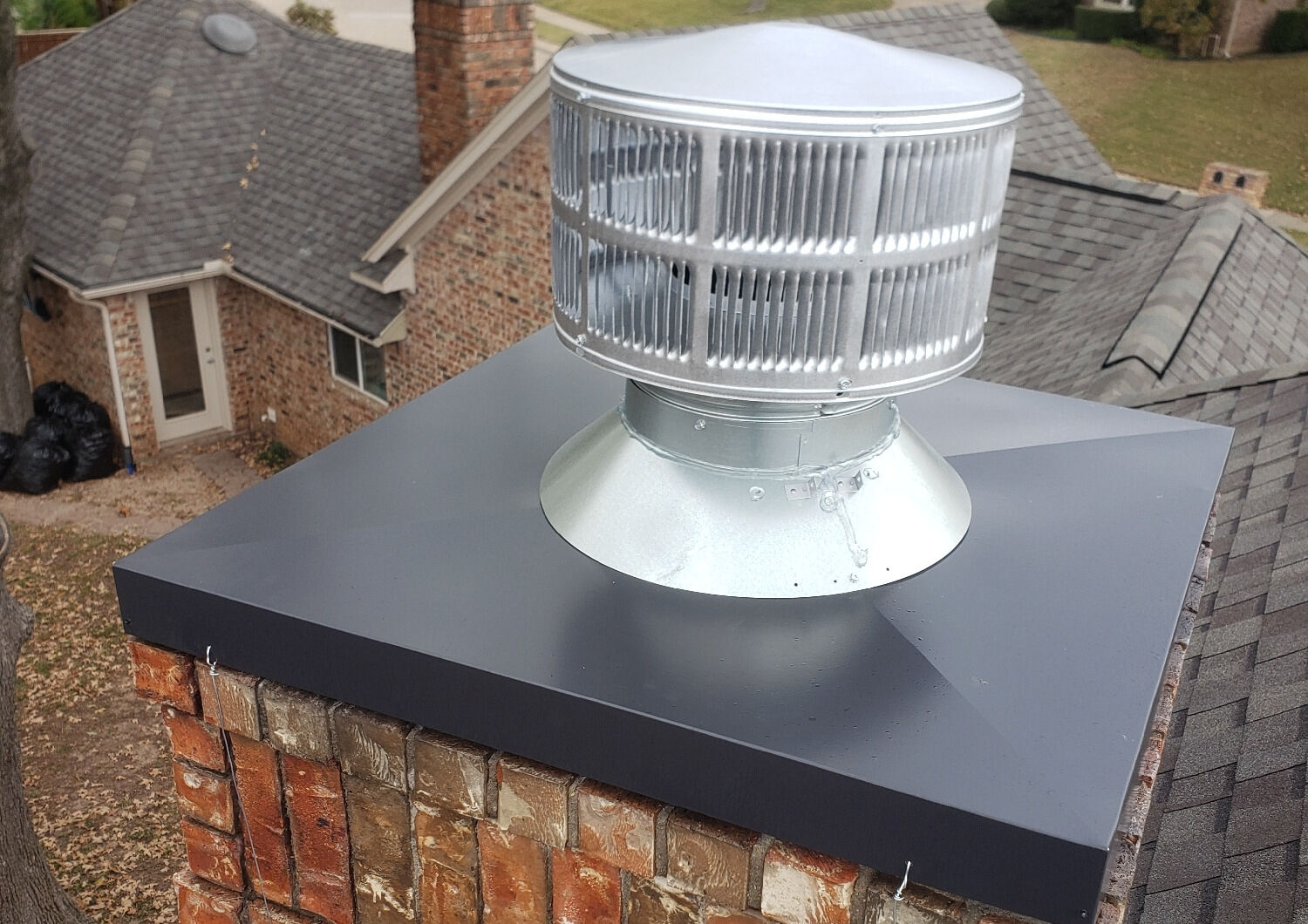Home>Home Maintenance>Where To Make A Complaint Against Home Repair


Home Maintenance
Where To Make A Complaint Against Home Repair
Modified: March 6, 2024
Need to make a complaint against a home repair? Find out where to report issues with home maintenance services and get the support you need.
(Many of the links in this article redirect to a specific reviewed product. Your purchase of these products through affiliate links helps to generate commission for Storables.com, at no extra cost. Learn more)
When to Make a Complaint
Dealing with home repairs can often be a stressful experience. From leaky pipes to faulty wiring, there are countless issues that can arise in a home. While most homeowners can rely on professional contractors to fix these problems, there are instances when the service or workmanship may not meet expectations. In such cases, it is important to know when and how to make a complaint to ensure that your concerns are heard and addressed.
Here are some situations where making a complaint may be necessary:
- Poor workmanship: If you notice shoddy or incomplete work that does not meet industry standards or the terms of your contract, it is important to voice your concerns.
- Unexpected additional costs: If you are hit with unexpected or excessive charges that were not agreed upon, it is essential to address these issues promptly.
- Failure to meet deadlines: If the contractor consistently misses project deadlines or fails to complete the work within a reasonable timeframe, it may be necessary to file a complaint.
- Unresolved issues: If you have presented the contractor with your concerns or complaints directly and they go unaddressed or unresolved, further action may be required.
- Violation of contract: If the contractor fails to adhere to the terms and conditions outlined in your agreement, it is crucial to take appropriate steps to protect your rights as a consumer.
Before making a complaint, it is important to gather all relevant documentation including contracts, invoices, and any communication you’ve had with the contractor. This documentation will serve as evidence should you need to escalate the issue further.
Next, let’s explore some avenues where you can formally lodge a complaint.
Key Takeaways:
- Don’t hesitate to complain if you encounter poor workmanship, unexpected costs, missed deadlines, or contract violations. Gather evidence and reach out to licensing boards, consumer protection agencies, or small claims court for resolution.
- Utilize online platforms like the Better Business Bureau, social media, and review websites to voice your concerns and hold home repair contractors accountable. Maintain a respectful tone and provide detailed, factual information to seek resolution.
Contractor Licensing Boards
One of the first steps to take when making a complaint against a home repair contractor is to reach out to the appropriate contractor licensing board in your area. These boards are responsible for regulating and overseeing the licensing and professional conduct of contractors.
When filing a complaint with a contractor licensing board, it is important to provide them with all the relevant information regarding the issue. This includes details about the contractor, the specific work being performed, and any evidence or documentation that supports your complaint.
The licensing board will then review your complaint and investigate the matter. Depending on the severity of the issue, they may take disciplinary action against the contractor, such as imposing fines, suspending their license, or revoking their license altogether.
Keep in mind that the actions taken by licensing boards vary from jurisdiction to jurisdiction, so it is important to familiarize yourself with the specific regulations and processes in your area.
It is also worth noting that lodging a complaint with a licensing board does not guarantee that you will receive compensation for any damages or losses incurred. This process primarily focuses on holding contractors accountable for their professional conduct.
While contractor licensing boards are an important resource for addressing issues with contractors, there are additional avenues you can explore to escalate your complaint if necessary.
Better Business Bureau (BBB)
The Better Business Bureau (BBB) is a widely recognized organization that aims to promote ethical business practices and help consumers resolve disputes with companies. If you have encountered issues with a home repair contractor, filing a complaint with the BBB can be a valuable course of action.
The BBB acts as an intermediary between consumers and businesses, providing a platform to voice concerns and seek resolution. To file a complaint with the BBB, start by visiting their website and locating the “File a Complaint” section.
When filling out the complaint form, be sure to include as much detail as possible. Describe the issue concisely and provide any supporting documentation you may have. The BBB will then attempt to facilitate communication between you and the contractor to find a resolution.
The BBB assigns ratings to businesses based on various factors such as consumer complaints, response time, and resolution efforts. This rating can be a helpful indicator when assessing the reliability and trustworthiness of a contractor.
By filing a complaint with the BBB, you not only have the opportunity to bring attention to your issue but also contribute to the overall public record of a contractor’s performance. This can help other consumers make informed decisions when hiring contractors for their own home repairs.
While the BBB can mediate disputes and facilitate negotiations, it is important to note that they do not have the authority to enforce legal judgments or mandates. If your complaint involves significant financial losses or legal matters, you may need to pursue alternative avenues to seek appropriate recourse.
Next, let’s explore other consumer protection agencies that you can turn to when making a complaint against a home repair contractor.
Consumer Protection Agencies
Consumer protection agencies play a vital role in safeguarding the rights and interests of consumers. These agencies are typically government-run organizations that enforce laws and regulations to ensure fair practices in the marketplace.
When facing issues with a home repair contractor, it is beneficial to reach out to your local consumer protection agency for assistance and guidance. These agencies have the authority to investigate complaints, mediate disputes, and take legal action if necessary.
To find your local consumer protection agency, start by conducting an online search with keywords such as “consumer protection agency” or “consumer affairs department” along with your city or state name. This will provide you with the necessary contact information and resources.
When filing a complaint with a consumer protection agency, be sure to provide detailed information about the contractor and the issue at hand. Include any supporting documentation and evidence that you have gathered. These agencies will investigate your complaint and take appropriate action based on their findings and the laws governing consumer protection in your area.
Consumer protection agencies often have a wide range of powers, including the ability to issue fines, revoke licenses, and initiate legal proceedings against non-compliant contractors. Additionally, they may offer guidance on your legal rights and recourse options.
It is important to note that consumer protection agencies primarily handle cases involving violations of consumer protection laws and regulations. For issues related to contractual disputes or claims for damages, you may need to explore other legal avenues such as small claims court.
Now that we have covered consumer protection agencies, let’s delve into the option of filing a complaint with the Department of Consumer Affairs.
Department of Consumer Affairs
The Department of Consumer Affairs (DCA) is a government agency that is responsible for protecting and advocating for consumers. They oversee various industries and professions to ensure compliance with consumer protection laws and regulations.
If you have encountered issues with a home repair contractor, filing a complaint with the Department of Consumer Affairs can be a valuable step to seek resolution. The DCA has the authority to investigate complaints, mediate disputes, and take disciplinary action against contractors if necessary.
Start by visiting the website of your local Department of Consumer Affairs to find information on how to file a complaint. They will typically have a complaint form that you can fill out, providing details about the contractor and the issues you have experienced.
Be sure to include any supporting documentation, such as contracts, invoices, photographs, or any communication you have had with the contractor. This will help the DCA assess your complaint and take appropriate action.
Once your complaint is filed, the DCA will review the information provided and may initiate an investigation. They may attempt to mediate a resolution between you and the contractor, or they may take disciplinary action if they find evidence of misconduct or violation of consumer protection laws.
It is important to be patient during the process, as investigations and resolutions can take time. Stay in communication with the DCA and provide any additional information they require to facilitate the resolution of your complaint.
While the DCA can play a significant role in addressing issues with home repair contractors, it is important to note that they cannot provide legal advice or represent you in court. If your complaint involves significant financial losses or legal matters, you may need to seek legal counsel or explore the option of filing a claim in small claims court.
Next, let’s explore the option of resolving complaints through small claims court.
If you need to make a complaint against a home repair, start by contacting your state’s consumer protection agency or the Better Business Bureau. They can help you navigate the process and resolve the issue.
Small Claims Court
Small claims court is a legal option available to consumers to address disputes and seek compensation for damages or losses resulting from issues with a home repair contractor. It is designed to resolve claims quickly and efficiently, without the need for lawyers or complex legal procedures.
Small claims court is typically used for cases involving relatively small amounts of money. The maximum claim limit varies by jurisdiction, so it is important to familiarize yourself with the specific rules and limits in your area.
To initiate a claim in small claims court, gather all relevant documentation, including contracts, invoices, photographs of the issue, and any communication with the contractor. This evidence will support your case when presenting it to the court.
Start by contacting your local small claims court to obtain the necessary forms and information on filing a claim. The court staff will guide you through the process and provide instructions on how to properly complete the forms.
When filing a claim, be sure to clearly outline the issue, the desired resolution, and the amount of compensation you are seeking. Provide all supporting documentation and evidence to strengthen your case.
Once your claim is filed, the court will schedule a hearing where you and the contractor will have the opportunity to present your arguments and evidence. The process is generally less formal than other court proceedings, and many cases are resolved through negotiation or mediation during the hearing.
After hearing both sides of the case, the judge will make a decision and may award damages or provide other forms of relief if they find in your favor. It is important to follow any instructions or deadlines set by the court to ensure a smooth and efficient resolution.
Keep in mind that the decision of the small claims court is legally binding, and both parties must comply with the judgment. If the contractor fails to comply, additional legal actions may be necessary to enforce the court’s decision.
While small claims court can be an effective way to pursue compensation for damages or losses, it is essential to weigh the costs and benefits, including any filing fees or legal expenses involved. Consulting with a legal professional can help you determine if small claims court is the right option for your specific situation.
Now, let’s explore the option of filing a complaint through online complaint portals.
Online Complaint Portals
In today’s digital age, online complaint portals have become a popular option for consumers to voice their grievances and seek resolution for issues with home repair contractors. These portals provide a convenient and accessible platform to file complaints and engage in a dialogue with the contractor.
There are various online complaint portals available, both general and industry-specific. Some popular options include websites like Consumer Complaints, Complaints Board, and Ripoff Report. These platforms allow consumers to submit their complaints, rate businesses, and share their experiences with others.
When using an online complaint portal, it is important to provide clear and concise details about the issue you have faced with the contractor. Include relevant information such as the contractor’s name, contact information, a description of the problem, and any supporting evidence or documentation you have.
While online complaint portals provide an avenue for expressing your concerns, it is important to keep in mind that the resolution process can vary. Some portals may attempt to mediate the dispute or facilitate communication between you and the contractor, while others simply serve as a platform for voicing complaints and sharing experiences.
It is also important to note that online complaint portals may not have the same legal authority as government agencies or courts. However, they can still have an impact by influencing public perception and potentially influencing the contractor’s reputation and future business opportunities.
When utilizing online complaint portals, it is important to maintain a respectful and factual tone in your complaint. Avoid making false statements or engaging in personal attacks, as this can undermine the credibility of your complaint and potentially lead to legal consequences.
Furthermore, while online complaint portals can be a valuable resource, they should not be the only avenue you pursue. It is still recommended to explore other options such as filing a complaint with licensing boards, consumer protection agencies, or considering legal action if necessary.
Nowadays, social media has also become a popular platform for voicing concerns and making complaints. Let’s explore how to use social media platforms effectively in addressing issues with home repair contractors.
Social Media Platforms
In the age of social media, platforms like Facebook, Twitter, and Instagram have become powerful tools for consumers to voice their concerns and complaints about home repair contractors. Social media allows you to reach a wide audience and potentially catch the attention of the contractor, their followers, and even the media.
When using social media to make a complaint, it is important to consider the following tips:
- Be specific: Clearly state the issue you have encountered with the contractor. Provide details about the situation, the impact it has had on you, and any attempts you have made to resolve the problem.
- Tag the contractor: When posting your complaint, make sure to tag the contractor’s social media account. This increases the chances of them seeing your message and responding to it.
- Use appropriate hashtags: Include relevant hashtags that are commonly used in your industry or related to complaints. This can help your post reach a wider audience and increase the chances of it being seen and shared.
- Stay respectful: While it can be tempting to express frustration and anger, it is important to remain respectful in your communication. Stick to the facts, avoid personal attacks, and focus on seeking a resolution to the issue.
- Share evidence: If you have any photos, videos, or other documentation related to the issue, include them in your social media post. Visual evidence can be compelling and help support your complaint.
- Engage with the contractor and followers: Be prepared for responses from the contractor or their followers. Engage in a constructive dialogue, address any questions or concerns, and present your case with clarity and professionalism.
- Consider privacy settings: Depending on the sensitivity of your situation, you may wish to adjust your privacy settings to control who can see and interact with your post. This allows you to maintain some level of privacy while still addressing the issue publicly.
It is important to note that while social media can be a powerful platform for raising awareness and holding contractors accountable for their actions, it may not always result in a direct resolution. You may still need to explore other avenues, such as filing a complaint with licensing boards or consumer protection agencies, to ensure your concerns are properly addressed.
Additionally, be aware that false statements or defamation on social media can have legal consequences. Stick to the facts and focus on your personal experience with the contractor to avoid any potential legal issues.
Now, let’s explore how review websites can be useful in making complaints against home repair contractors.
Review Websites
Review websites have become widespread platforms for consumers to share their experiences and opinions about various businesses, including home repair contractors. These websites provide an opportunity for individuals to leave detailed reviews, rate their experiences, and offer insights for others considering hiring a contractor. Utilizing review websites can be a valuable way to make a complaint against a home repair contractor.
When using review websites to make a complaint, keep the following tips in mind:
- Provide balanced feedback: When writing your review, try to provide a fair and balanced assessment of your experience with the contractor. Highlight both the positive aspects and the issues you encountered.
- Be thorough and specific: Provide detailed information about the specific problems you faced and any attempts you made to resolve them. Include relevant dates, names of the contractor and their employees, and specifics about the work performed.
- Stick to the facts: When sharing your complaint, ensure that your statements are truthful and based on your personal experience. Avoid making false claims or exaggerations that could open you up to potential legal consequences.
- Include supporting evidence: If possible, attach photos, videos, or other documentation that support your complaint. Visual evidence can significantly strengthen your case and provide credibility to your review.
- Use an appropriate tone: Maintain a professional and respectful tone throughout your review. Express your frustrations or concerns, but refrain from using offensive language or personal attacks.
- Consider the timing: Ideally, it is best to write your review after you have made reasonable attempts to address the issue directly with the contractor. This ensures that you have given them a fair opportunity to rectify the situation.
- Engage with responses: Be prepared for responses from both the contractor and other readers. Engage in constructive dialogue, respond to any questions or comments, and provide additional information if necessary.
By sharing your experience and concerns on review websites, you can help inform other consumers and potentially influence the reputation and choices of future clients. However, it is important to remember that review websites should not be your sole method of seeking resolution. Pursuing avenues like filing complaints with regulatory boards or engaging in legal actions may be necessary for a satisfactory outcome.
Now that we have explored various avenues to make complaints against home repair contractors, it is essential to remember that the ultimate goal is to seek a fair resolution and ensure accountability. By voicing your concerns, you contribute to a safer and more reliable market for homeowners seeking repair services.
Frequently Asked Questions about Where To Make A Complaint Against Home Repair
Was this page helpful?
At Storables.com, we guarantee accurate and reliable information. Our content, validated by Expert Board Contributors, is crafted following stringent Editorial Policies. We're committed to providing you with well-researched, expert-backed insights for all your informational needs.














